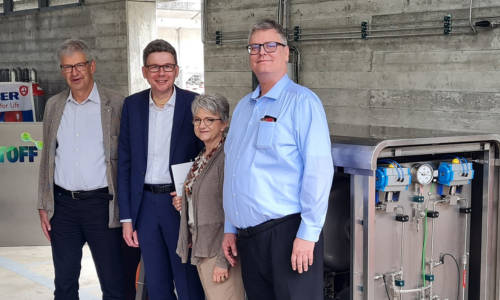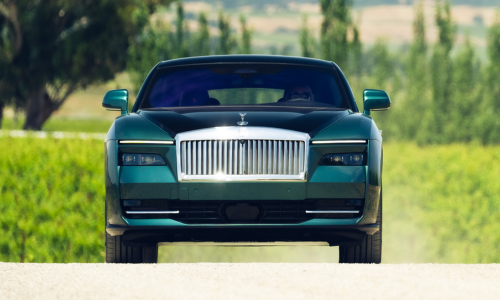Does the Future Belong to Hydrogen Cars After All?
BMW, Toyota, Honda, and Hyundai already offer hydrogen-powered vehicles. Rolls Royce also has plans for such a car. The critical factor is the infrastructure. Now, Swiss companies are sparking imagination with an innovative fueling station.
The adoption of electric vehicles (EVs) with battery power faces significant challenges, with their market penetration and replacement of internal combustion engines progressing more slowly than anticipated.
Some major car manufacturers, who recently committed to an all-electric strategy, are now expressing more caution. In the EU, the ban on combustion engines from 2035 is uncertain following recent elections.
Hydrogen Powers Both Combustion and Electric Vehicles
Hydrogen cars are seldom discussed in this context. Hydrogen can be used directly in a combustion engine as fuel or can generate electricity when combined with oxygen from the air in a fuel cell.
Current hydrogen-powered car models employ both technologies: the Toyota Mirai runs on a combustion engine basis, whereas the Hyundai Nexo, the upcoming Honda CR-V e:FCEV, and the BMW iX5 Hydrogen concept car, slated for mass production in the second half of this decade, use fuel cell technology. Hyundai has announced a production-ready hydrogen combustion engine for next year.
Rolls Royce: Infrastructure Issue
In theory, hydrogen produced ecologically combines environmental benefits with the convenience of quick refueling.
Last year, Rolls-Royce CEO Torsten Müller-Ötvös hinted in an interview that his brand is also exploring hydrogen development. He considers replacing batteries with fuel cells feasible, provided significant advances in fueling infrastructure are made.
According to the H2 Mobility Association, Switzerland currently has only 14 hydrogen fueling stations.
«Suitable Even for Residential Areas»
This is set to change soon, according to industrial gas manufacturer Messer Schweiz. The company recently unveiled an officially approved hydrogen fueling station in Lenzburg, noted for its «noise- and vibration-free operation» making it suitable for «use even in residential areas,» which is «unique worldwide.» «Highly flexible in location choice, the facility requires no dedicated building or additional soundproofing.»
The technology was partially developed by GRZ Technologies, a spin-off from EPFL.

Messer CEO Kellner (right) with cantonal political figures in front of the refueling facility. From left: Grand Councilor Daniel Mosimann, State Councilor Dieter Egli, National Councilor Maya Bally. (Image provided)
Commercialization Still Unclear
«Our globally unique facility marks a significant step in the development of environmentally friendly and sustainable mobility and underscores the pioneering role of the Canton of Aargau in hydrogen technologies,» says Hans M. Kellner, CEO of Messer Schweiz.
The company has not yet provided details on the planned commercialization or rollout of the technology.




















